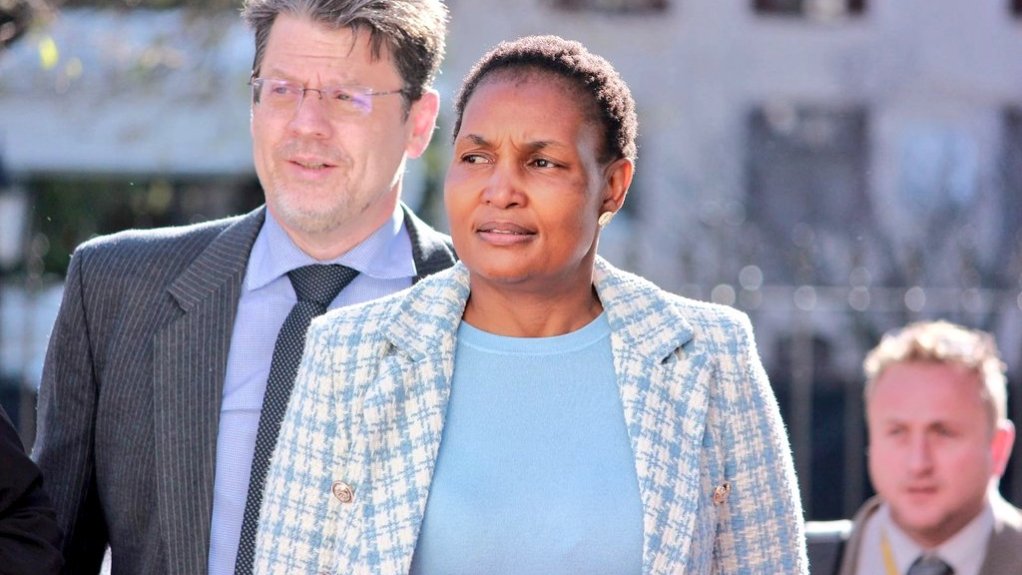Programme Director
Executive Director of Africa Legal Aid, Evelyn A Ankumah
Esteemed Members of Africa Legal Aid
Minister of Justice of the Republic of Niger, Honorable Alio Daouda
Distinguished guests
Ladies and gentlemen
Good morning,
I wish to express my sincere and profound gratitude to the leadership of Africa Legal Aid for the opportunity to welcome all the distinguished guests, and honorable members attending this important meeting.
It gives me great pleasure to warmly welcome you all to South Africa. I am particularly convinced that you will enjoy your time in our beautiful country and we look forward to creating good and lasting memories during your stay in South Africa.
I would have loved to attend this auspicious gathering physically, but due to other prior arranged pressing government undertakings, I am unable to attend, and I want to convey my sincere apologies to the meeting.
Programme Director,
It is poignant and undoubtedly befitting that this meeting takes place here in South Africa. What even makes the decision to have this gathering of legal minds here, in South Africa significant, is the fact that two days ago, on 28 October 2024, the South African government, filed its Memorial to the International Court of Justice (ICJ), this is, in its case on the application of the Convention on the Prevention and Punishment of Crime on Genocide in the Gaza strip.
We take cue from the instructive and philosophical injunction of former President Nelson Mandela when he said: “But we know too well that our freedom is incomplete without the freedom of the Palestinian.”
We are at a pivotal moment in the history of international law and human rights that requires us to resolve or confront the challenges that threaten global peace and security. What this case has also brought to the fore is heighten the inextricable link of law and politics.
In as much as the ICC is a legal institution, it is surrounded by political actors. Further, it is an institution created by sovereign governments with different political interests to protect. We need to be realistic to this tension as it’s not likely to disappear, given that the ICC contradictory provisions in the Rome Statute that established the ICC.
The very complex relationship between the United Nation Security Council and the International Criminal Court and how it is managed in reality has raised serious concerns.
What is evident that in cases of doubt or conflict between the law and politics, the law unfortunately takes the back seat. Perhaps your discussions might consider engaging on what an adequate framework would look like, to remove any conflict of doubt, to balance the imperatives of security and justice within the international realm.
It may also be opportune to navigate and call on other entities in the African Union. (AU) It may also be worthwhile considering whether some issues of contention or conflict should be unpacked to a legal standard, such as accountability.
A relationship that I expect will dominate these deliberations is the contention between ICC and the United Nations Security Council (UNSC). The referral ability of states to the ICC by the UNSC as the suspension powers of the UNSC of ongoing ICC investigations on any of its cases, if such investigations will be considered threats to international peace and security.
We are in an era of accountability so all opportunities to consolidate our collective efforts in the pursuit of justice and accountability on the international level must be capitalized on. Addressing impunity will require unwavering dedication and collaboration. This includes efforts and a strategy that insulates institutions like the ICC from undue pressure and that the ICC is equipped to address the complexities of modern conflicts and to deliver justice for victims around the world.
Programme Director,
The Kampala Amendments, adopted in 2010, during our previous discussions, represent a groundbreaking moment in international law and the fight against impunity.
They establish a framework for prosecuting the crime of aggression, thereby reaffirming our commitment to a world where states cannot act with impunity, where the sovereignty of nations is respected, and where conflicts are resolved through dialogue and diplomacy rather than through violence and conflict. It is therefore necessary to embrace these amendments, not merely as legal protocols but as advancing international law and protecting our respective countries from ever experiencing the atrocities that we are currently seeing.
As stewards of justice and accountability our collective future as African states, the true potential of these amendments can only be realized through proactive engagement and ownership by African states parties to the International Criminal Court (ICC).
There is no place for complacency and apathy, we need robust participation and constructive engagement as you share your perspectives and work together toward a common goal: a world where justice prevails, and those who commit heinous acts are held accountable. Similarly, this is an opportunity to recalibrate the institutions and reclaim the political and moral leadership.
I look forward to the outcomes of these deliberations as we explore the implications of the amendments, discuss the pathways for their implementation, and reinforce our commitment to the rule of law.
Once again, you are welcomed to South Africa, and thank you so much for your commitment and for your presence here today.
I thank you.
EMAIL THIS ARTICLE SAVE THIS ARTICLE ARTICLE ENQUIRY
To subscribe email subscriptions@creamermedia.co.za or click here
To advertise email advertising@creamermedia.co.za or click here











